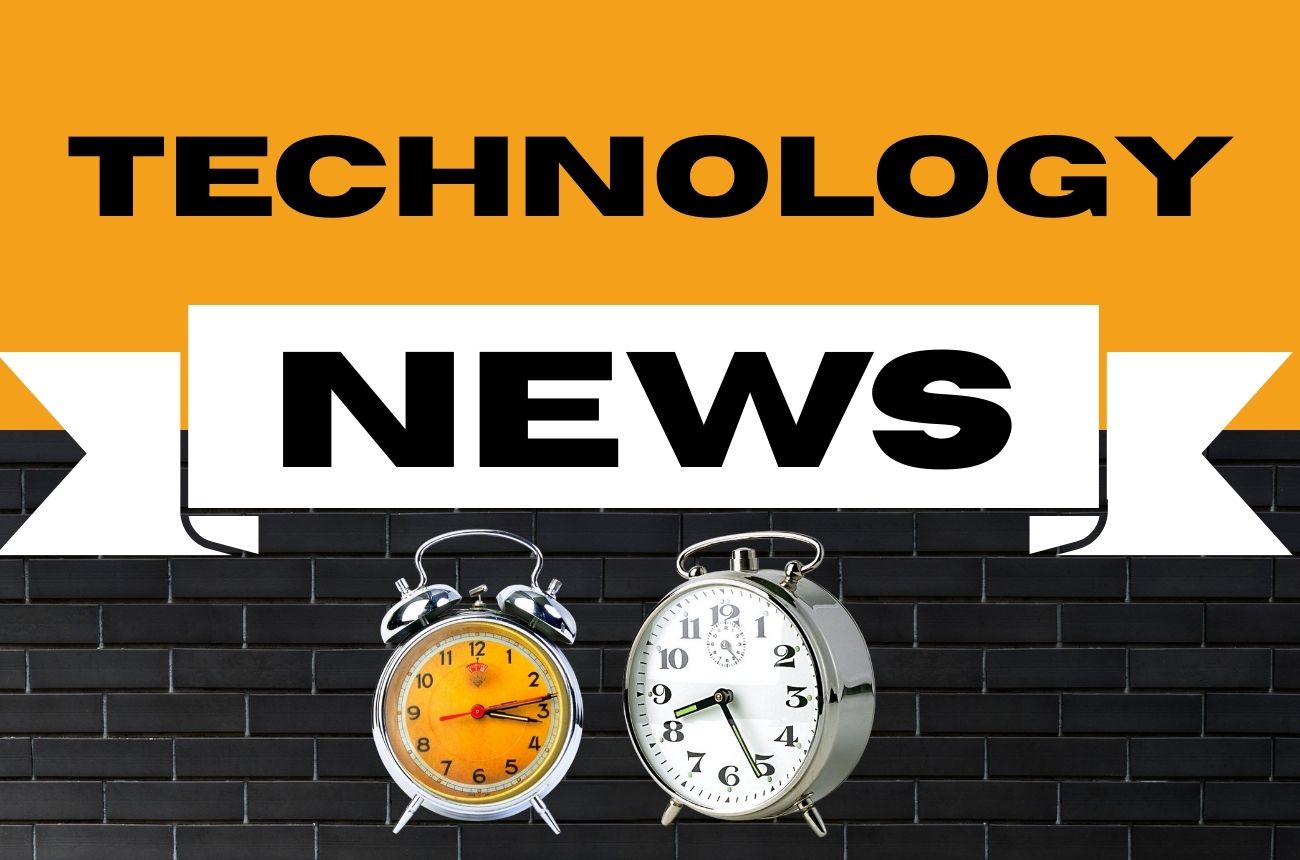News
Technology News Updates: Gadgets, AI Trends & Today’s Top Stories

In today’s fast-paced digital world, Technology News is more than just a section in a news portal—it’s a critical window into the innovations that are shaping the future. From groundbreaking AI developments to the launch of futuristic gadgets and the transformation of industries through tech, the global landscape is shifting rapidly. For tech enthusiasts, industry professionals, and curious minds alike, staying updated on technology news isn’t optional—it’s essential.
Over the last few years, the spotlight has especially turned toward Artificial Intelligence (AI), smart devices, robotics, and personalized digital experiences. These aren’t isolated advancements but part of a broader trend towards more integrated, intelligent, and autonomous systems. In this comprehensive article, we dive deep into the latest technology news, exploring newly discovered trends, recent gadget launches, and the real-world applications of AI that are disrupting industries globally.
AI Trends Redefining Industries in 2025
a. Generative AI Goes Enterprise-Grade
In 2025, Generative AI is no longer limited to text or image creation tools—it’s now embedded into enterprise-level workflows. Major platforms like Google Cloud and Microsoft Azure are integrating GenAI tools to automate coding, data analytics, and customer service operations. Tools like Code Interpreter AI, capable of solving real-time logic problems in multiple programming languages, are revolutionizing development cycles.
b. AI-Augmented Decision-Making
AI is not replacing humans, but augmenting their decision-making. In sectors like healthcare, AI is being used to analyze patient history, real-time symptoms, and even genetic markers to recommend personalized treatment plans. Financial institutions now rely on AI-driven predictive modeling to detect fraud patterns in real time.
c. Rise of Emotion-Aware AI
New breakthroughs in Affective Computing—technology that understands human emotions—are bringing emotionally responsive AI assistants closer to reality. Startups like Hume AI and tech giants like Meta are building models that interpret voice tone and facial expressions to adapt responses in real-time.
Gadget News: Smart Devices That Are Changing Daily Life
a. The Foldable Future: Phones That Morph
The foldable smartphone trend has matured significantly. In 2025, Samsung Galaxy Z Fold6 and Google Pixel Fold 2 are not only more durable but feature AI-driven screen optimization, adjusting content layout based on the fold angle. Lenovo recently debuted a foldable laptop-tablet hybrid that features two OLED touchscreens and a detachable keyboard.
b. Smart Glasses: A Second Coming
After years of failed attempts, smart glasses have made a comeback. Meta’s partnership with Ray-Ban has produced AI-integrated AR glasses that offer real-time language translation, object identification, and video recording—all controlled by voice. With improved battery life and sleeker design, this category is poised for mass adoption.
c. Wearables with Health-Tech Integration
From smart rings tracking sleep cycles and ovulation to bio-sensing wristbands capable of detecting stress levels, wearable tech has become more precise. Oura Ring Gen 4 and Whoop Band 5.0 are now used by athletes and medical professionals alike for continuous health monitoring and predictive health analytics.
Today’s Top Stories: What’s Making Headlines in Tech

a. Google Unveils Project Astra: AI That Watches, Listens & Assists
Google’s I/O 2025 introduced Project Astra, an AI agent that uses video and audio inputs in real time to offer context-based assistance. Demonstrated with real-world use cases like guiding repairs through smart glasses or navigating visually impaired users through public transport, this is a major leap in human-computer interaction.
b. Apple’s Quantum Research Lab Goes Public
Apple has confirmed the establishment of a Quantum Computing Lab in Cupertino, with the goal of developing consumer-grade quantum processors within the next decade. The move aligns with Apple’s push to future-proof its product ecosystem with quantum-enhanced AI capabilities.
c. OpenAI and Microsoft Launch Autonomous Coding Companion
The latest tech news includes the launch of “Copilot-X”, an autonomous coding partner integrated into Microsoft Azure DevOps. Unlike earlier copilots, this tool can now handle end-to-end software development, from writing documentation to launching containerized apps, with minimal human oversight.
The Role of AI in Sustainable Innovation
a. AI for Climate Modeling and Environmental Monitoring
One of the lesser-known but fast-growing applications of AI is in climate science. In 2025, AI systems are now used to simulate long-term climate scenarios with unprecedented accuracy. Platforms like ClimateAI offer predictive modeling that helps governments plan disaster preparedness, resource allocation, and urban planning.
b. Green Tech and Smart Energy Management
With energy efficiency becoming a global priority, companies are leveraging AI to manage energy consumption at industrial and residential levels. Smart grids powered by machine learning can now predict peak demand periods, redirect energy from surplus zones, and significantly reduce wastage.
Edge AI and the Growth of Real-Time Applications
a. AI at the Edge: Faster, Smarter, Local
Edge computing isn’t just a buzzword anymore—Edge AI is transforming how data is processed. From self-driving cars to smart factories, AI is now being deployed directly on devices, bypassing cloud delays. NVIDIA’s Jetson Orin Nano is being used in warehouse robotics for real-time sorting and pathfinding with minimal latency.
b. Autonomous Drones and Surveillance
Law enforcement and logistics companies are testing autonomous drones that can perform object tracking, thermal imaging, and predictive pathfinding using on-board AI. These drones require no internet connectivity and make decisions within milliseconds based on edge AI models.
AI-Powered Personalization: The New Standard
a. Hyper-Personalized Content Delivery
Streaming services and e-commerce platforms are evolving from “recommended for you” to real-time content adaptation. Netflix now uses AI that adjusts scene sequences based on viewer preferences (e.g., faster pacing for certain demographics). Similarly, platforms like Amazon and Alibaba are testing AI engines that change homepage layouts dynamically based on user mood and scrolling behavior.
b. Personalized Education and Skill Development
AI is transforming education by offering customized learning paths. Tools like Khanmigo (from Khan Academy) and Duolingo Max adapt lesson difficulty in real-time, helping learners stay engaged while mastering topics faster. EdTech startups now offer AI tutors that adjust tone and content delivery based on student learning style.
Ethical AI and Regulation in 2025
a. Global Movement Toward AI Regulation
Countries across the globe are aligning with the EU’s AI Act, creating frameworks for transparency, data privacy, and algorithmic accountability. In the U.S., the Algorithmic Accountability Act has entered its final drafting phase, which mandates organizations to audit AI models regularly.
b. Bias Detection and Mitigation
AI bias continues to be a major concern. New tools like FairLearn, Audit-AI, and Google’s Vertex AI Explainability are being used to audit models in sensitive domains like finance, law, and hiring. There’s growing momentum for making AI fairness and explainability a legal requirement in all customer-facing systems.
Collaborative Innovation: Open Source AI Gains Ground
a. Decentralized AI Development
Open-source AI models like Mistral, Mixtral, and LLaMA 3 are providing developers worldwide access to high-performing language models at zero cost. This democratization is fueling a surge in local language model development, especially in underserved regions like Africa, South Asia, and Latin America.
b. Community-Led AI Improvements
Platforms such as Hugging Face and EleutherAI have made it easier than ever for contributors to build, test, and improve AI systems collaboratively. These models are widely used in education, research, and non-profit initiatives—spreading the benefits of AI beyond big tech.
Conclusion
The current wave of Technology News showcases a world where innovation is accelerating at an unprecedented pace. Whether it’s AI augmenting human potential, gadgets making life more efficient, or edge computing enabling real-time intelligence, the transformation is holistic and global. New breakthroughs are emerging daily, changing the way we live, work, and interact with technology.
At the heart of it all lies the mission to build a more connected, efficient, and human-centered digital future. From personalized experiences and industry disruptions to ethical considerations and regulatory frameworks, the roadmap ahead for technology is both exciting and complex.
For those looking to stay ahead, one thing is clear: Technology News isn’t just about the next big thing—it’s about understanding the changes that define our tomorrow. As we move forward, staying informed, curious, and critically engaged with tech developments will be crucial—not only for businesses but for everyone who’s a part of the digital age.
-

 Celebrity8 months ago
Celebrity8 months agoNick Schmit? The Man Behind Jonathan Capehart Success
-

 Celebrity9 months ago
Celebrity9 months agoChristina Erika Carandini Lee: A Life of Grace, Heritage, and Privacy
-

 Celebrity9 months ago
Celebrity9 months agoTrey Kulley Majors: The Untold Story of Lee Majors’ Son
-

 Celebrity9 months ago
Celebrity9 months agoJamie White-Welling: Bio, Career, and Hollywood Connection Life with Tom Welling
















